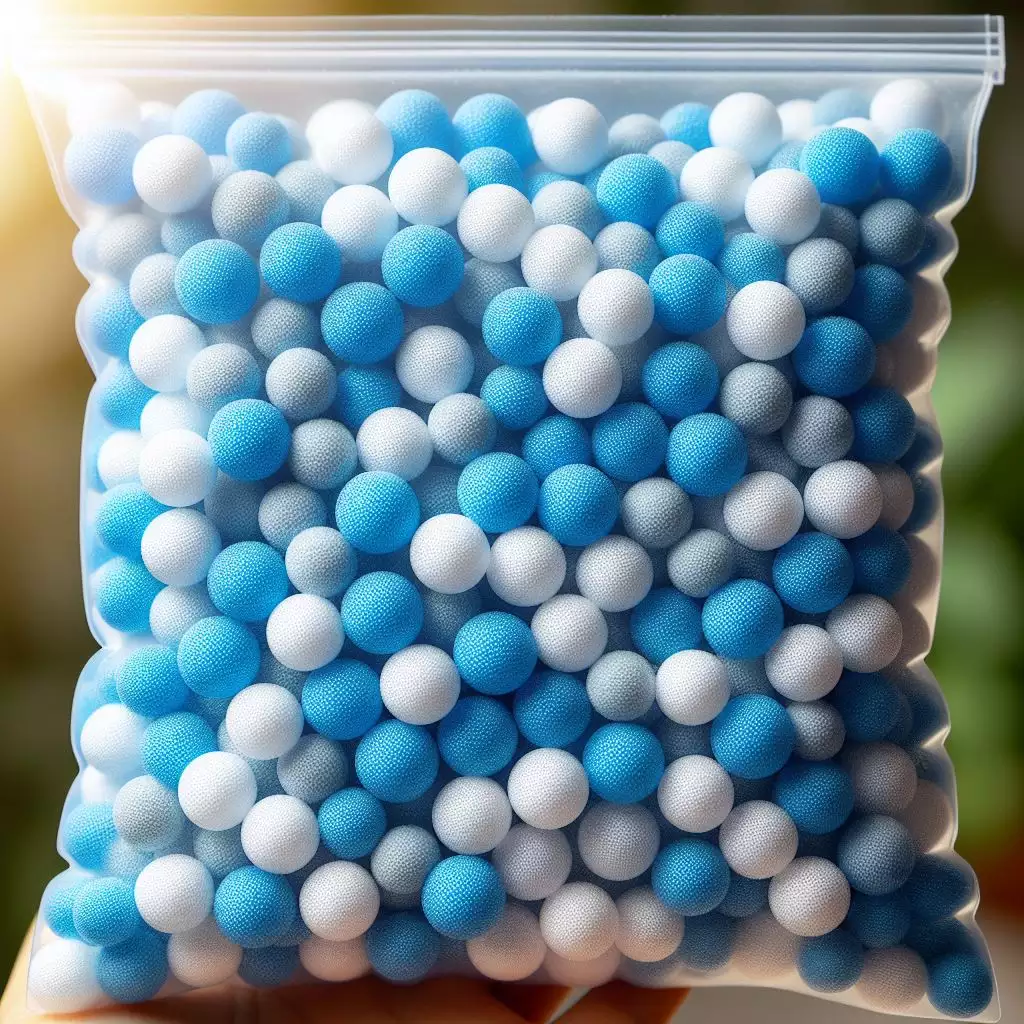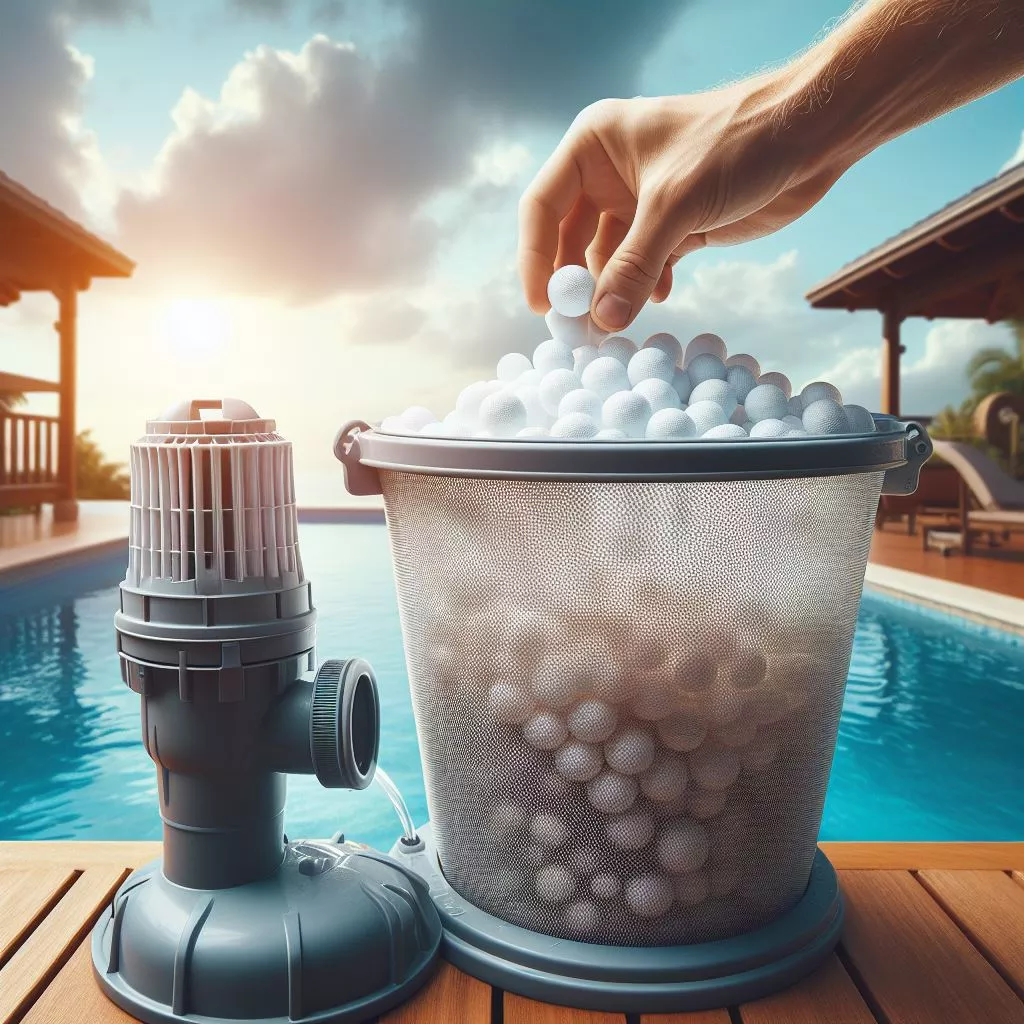In the heat of summer, nothing beats the refreshment of diving into a cool pool. However, to maintain the cleanliness of pool water, a filtration system is essential. In recent years, filter balls have emerged as a new type of filtration medium. What are the specific advantages and potential problems of using filter balls in different types of pools? Today, let’s explore this topic in detail.
What Are Filter Balls?
Filter balls are eco-friendly filtration media made from high-polymer materials, usually ranging from a few millimeters to a few centimeters in diameter. They circulate water through the pool’s filtration system, trapping tiny particles such as dust, leaves, and bacteria. Compared to traditional sand filter systems, filter balls offer higher filtration efficiency and longer service life, although there may be some pool filter balls problems like cleaning and maintenance.
Application of Filter Balls in Home Pools
Improved Water Quality
Home pools are usually smaller but used frequently, so water quality requirements are higher. The high-efficiency filtration capability of filter balls can significantly improve water quality, reducing suspended particles and impurities in the water, making the pool water clearer and more transparent.
Reduced Maintenance Workload
Using filter balls can significantly reduce the maintenance workload of the pool. Traditional sand filter systems require regular backwashing to remove accumulated debris, while filter balls, due to their good self-cleaning capability, require backwashing less frequently. This not only saves time but also reduces water wastage.
Extended Equipment Life
Filter balls cause less wear and tear on equipment, extending the life of the filtration system. Traditional sand filter systems may require sand replacement over time as the sand becomes loose, while filter balls have a longer service life and do not need frequent replacement, greatly reducing maintenance costs.
Application of Filter Balls in Commercial Pools

Efficient Handling of High Flow Rates
Commercial pools are usually larger and used more frequently, thus requiring more from the filtration system. The high-efficiency filtration capability of filter balls allows them to handle high flow rates of water, quickly removing impurities and maintaining clear and clean water quality.
Reduced Operating Costs
Water treatment costs account for a large proportion of the operating costs of commercial pools. Using filter balls can reduce the frequency of backwashing, decreasing water and electricity consumption, thereby effectively lowering operating costs. Although the initial investment may be higher, the long-term savings are significant.
Enhanced User Experience
Clear and transparent pool water not only enhances the user experience but also increases the pool’s appeal. Filter balls can more effectively remove fine particles from the water, achieving higher water quality standards and providing users with a more comfortable swimming environment.
Application of Filter Balls in Public Pools
Handling High Usage Loads
Public pools have high traffic and water quality can be easily compromised. The high-efficiency filtration capability of filter balls can handle high usage loads, quickly removing impurities and bacteria from the water, ensuring hygienic water quality.
Reduced Chemical Use
Filter balls can more effectively remove tiny particles from the water, keeping the pool water cleaner and reducing reliance on chemical agents. Reducing chemical use not only helps protect the environment but also minimizes irritation to the human body, providing a safer swimming environment.
Simplified Maintenance Management
Managing public pools involves a lot of maintenance work, and using filter balls can simplify these tasks. With reduced backwashing frequency and improved filtration efficiency, maintenance staff can focus more on other important tasks, improving overall efficiency.
Potential Problems with Filter Balls
Cleaning and Maintenance
Despite their many advantages, filter balls do present some pool filter balls problems related to cleaning and maintenance. While filter balls require less frequent backwashing, cleaning is still necessary when debris accumulates excessively. Proper cleaning methods must be employed to ensure the long-term effectiveness of filter balls.
Higher Initial Investment
The initial investment cost of filter balls is higher compared to traditional sand filter systems, which may cause some users to hesitate. However, in the long run, the water and energy savings provided by filter balls can offset the initial high cost.
Comparison Between Filter Balls and Sand Filter Systems
Filtration Effectiveness
Filter balls generally provide better filtration effectiveness than traditional sand filter systems. Sand filter balls have larger filtration granules that cannot effectively trap tiny impurities. Filter balls, on the other hand, can capture finer particles, resulting in clearer water.
Service Life
Filter balls have a longer service life and do not require frequent replacement. Traditional sand filter balls, however, become loose over time and need regular replacement, increasing maintenance costs.
Maintenance Convenience
Filter balls are relatively easy to maintain, without the need for frequent backwashing and sand replacement typical of sand filter systems. This makes filter balls more convenient in daily maintenance, saving time and effort.
Through analyzing the application of filter balls in different types of pools, we can see their significant advantages in improving water quality, reducing maintenance workload, and lowering operating costs. Despite some pool filter balls problems, their long-term benefits are undeniable. In today’s era of increasing environmental awareness, choosing filter balls as a pool filtration medium is undoubtedly an important step towards a greener future.

